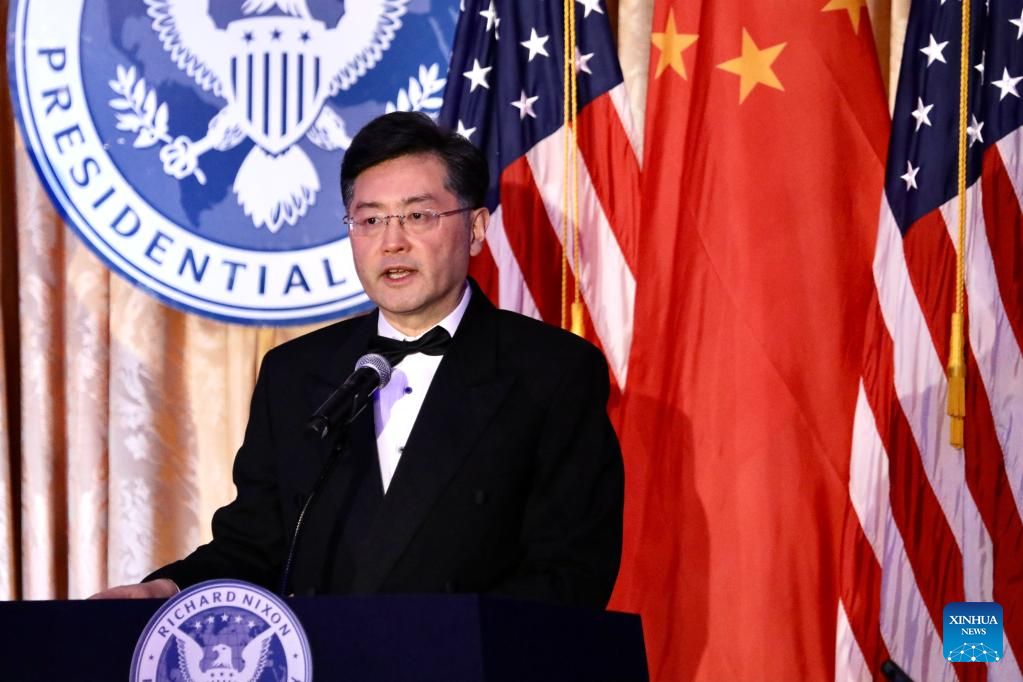
Chinese Ambassador to the United States Qin Gang addresses an event to commemorate the 50th anniversary of former U.S. President Richard Nixon's visit to China, in Yorba Linda, the United States, Feb. 24, 2022. (Xinhua)
YORBA LINDA, United States, Feb. 25 (Xinhua) -- Competition and confrontation should not be the keynote of China-U.S. relations, Chinese Ambassador to the United States Qin Gang said Thursday at an event to commemorate the 50th anniversary of former U.S. President Richard Nixon's visit to China.
"China-U.S. relations should not be like the intensely confrontational American football match. There should be no offensive team or defensive team, no touchdown, no quarterback sack," Qin said at the Richard Nixon Presidential Library and Museum in southern California.
Fifty years ago, Nixon became the first U.S. president to visit the People's Republic of China since its founding in 1949, whose trip laid the groundwork for normalizing China-U.S. relations.
Qin said Nixon's pragmatic diplomacy culminated in his monumental China visit 50 years ago, and his legacy still serves as an important reference today, which includes extraordinary strategic vision, huge political courage, and exceptional diplomatic wisdom.
"His visit is just a classical example of diplomacy featuring respecting each other, seeking common ground and reserving differences between our two countries," Qin said.
As the world's two largest economies and permanent members of the UN Security Council, it is simply impossible for China and the United States to stay in confrontation, hostility or estrangement, and any of these will cause unbearable damage to both countries and the world, Qin said.
The China-U.S. relationship has come to another historical juncture, he noted, mentioning that communication and dialogue are a wise choice to resolve differences, a right way to establish mutual trust and an effective means to reduce misjudgment.
The two sides should manage differences in a rational and constructive way, and not create problems or enlarge differences, Qin said.
There must be rules for competition, he said, adding that the Shanghai Communique and the other two Sino-U.S. Joint Communiques are the rules that the two sides must follow.
The One-China principle is the unshakable political foundation for China-U.S. relations, and a red line that must not be crossed, Qin stressed.
The Chinese diplomat urged the U.S. side to honor its commitments on the Taiwan question, and work with China to oppose and contain the "Taiwan independence" separatist forces.
Former U.S. Secretary of State and National Security Advisor Henry Kissinger delivered a video message to the event, in which he recalled his secret trip to China that paved the way for Nixon's historic visit to China in 1972.
Former U.S. Secretary of Transportation Elaine Chao, former U.S. Ambassador to China James Stapleton Roy, Richard Nixon's grandson Christopher Nixon Cox, and President and CEO of the Nixon Foundation Jim Byron also addressed the commemoration. ■



